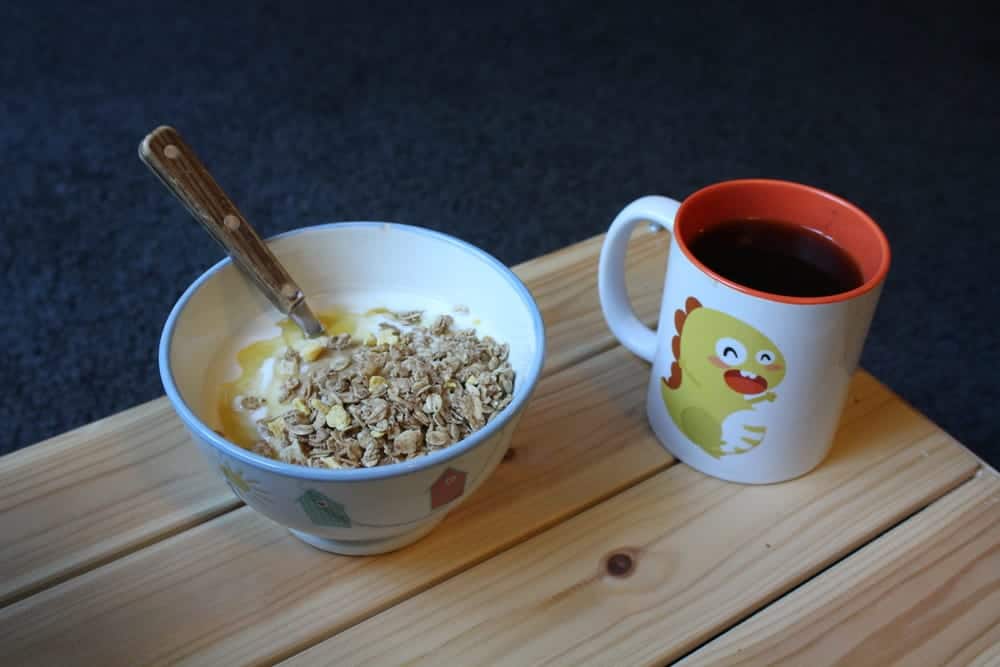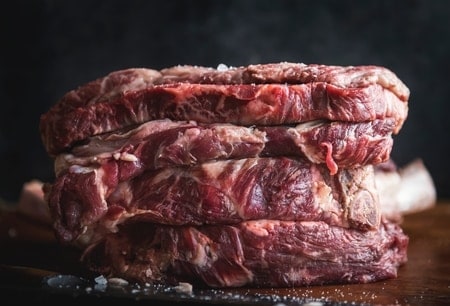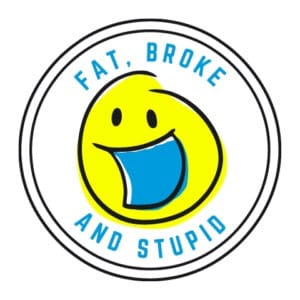Life would be infinitely less enjoyable without my daily rations of animal products, right?
A part of me used to think this. A part of me still hopefully does. But is it true?
My current animal product diet: I eat some meat. I eat a lot of eggs. I eat yogurt every morning. I eat animal products of all kinds to go along with my complimentary whole food, plant-based diet.

Given the fact that I have lost over 100 lbs. and kept it off for over 9 years, I thought that I was eating reasonably well. But have I been? Or have I just been telling myself this because the scale has been pretty stable due to regular exercise and better portion sizes?
Maybe my weight and my health are not necessarily the same thing? Maybe I am trimmer, but still on the road to heart disease and cancer?
I recently watched a documentary called Forks Over Knives by Brian Wendel. I had heard that it was a good documentary about eating healthy, but I did not know much else about it other than it was well recommended.
As a sneak peak, watch the trailer for the documentary now:
I’m embarrassed to say that on the day I watched the documentary my diet included, among other things:
- 1 bowl of yogurt
- 7 eggs with 2 types of cheese
- 2 handfuls of gummy bears… no regrets!
Sure, I did get some whole food, plant-based products into me, too, but was it enough?
I used to think that it was, but this documentary (which I will dig into momentarily) forced me to think critically and honestly about what I actually ate.
Without making any dietary changes… yet… I did a little analysis of my fridge, pantry and overall food choices. The goal was to see what animal products and processed foods were in the house and in my body. They included:
- Yogurt – every day for breakfast
- Cheese (3 varieties) – I currently live in the Netherlands where cheese is plentiful and delicious
- Eggs – lots of eggs for protein, right?
- Meat – honestly not too much in quantity, but I eat it regularly
- Protein Powder – of the animal variety
- Honey – bees are important!
- Butter – “Moooooooo!”
- Ketchup – along with other assorted condiments
- Gummy Bears (3 varieties) – my only real weakness in life
- Plus additional food I eat but don’t currently have at the moment…
While I rarely eat at restaurants, when I do, this is the time that I “treat myself” to larger portions of meat and other processed foods that I do not have at home.
So, I get my fair share of animal products… much, much more that I even realized. But what’s the big deal?
IMPORTANT NOTE: All of the good ideas that follow come from the film Forks Over Knives by Brian Wendel. This is just a taste of what the documentary has to offer. To learn more, watch the whole film.
Isn’t Meat and Dairy Good for You?

Meat 
Dairy
I think, inherently, we all know that a diet high in fruits, vegetables, grains and legumes is healthier than a diet rooted in sugar, oils, and highly processed food-like derivatives, right?
OK, we have a base to start from. We should all eat more whole food, plant-based products. Nothing new here.
Some assumptions we all probably believe:
- Meat has protein. Protein is good. So, meat is important.
- Dairy has calcium. Calcium is good. So, dairy is important.
This is an example of marketing at its best!
I already knew that whole food, plant-based products are good. What changed for me while watching this documentary was the realization of just how bad eating animal products can be on our health.
According to the research and work of Dr. Colin Campbell, Dr. Caldwell Esselstyn, and others featured in the film, there is a causal link between animal-based foods and some of our most deadly diseases!
Some examples from the movie:
- Casine, the main protein found in animal products, has been shown to promote cancer growth. Tumor growth increases with higher levels of this protein. Tumor growth decreases with lower levels of this protein. By monitoring your animal-based protein levels, you can essentially turn cancer growth on and off.
- Soybean and wheat protein, on the other hand, do not promote cancer growth.
- Dietary cholesterol ingested from animal products stays in the bloodstream and your blood vessels. This is a major cause of coronary artery disease.
- A typical Western diet damages the endothelial cells which line your veins and arteries. These cells are the “life-jacket” of your blood vessels.
- A whole food, plant-based diet reverses the damage to your endothelial cells.
- Higher dairy consumption, surprisingly, leads to higher levels of osteoporosis. This is because animal protein can cause metabolic acidosis. To combat this, the body uses the calcium in your bones as an acid buffer, thus weakening the bones you wanted to strengthen.
- A whole food, plant-based diet is always associated with lower mortality of certain cancers, strokes and coronary heart disease. It can even reverse heart disease.
- Plus so, so much more…!
Additional Scary Statistics
This film was released in 2011. According to the movie:
- More than 40% of Americans are obese.
- About half of all Americans take some prescription drug.
- We spend $2.2 trillion dollars on healthcare annually.
- Our healthcare spending is over 5x more than our defense budget.
- We spend more per person on healthcare than any other industrialized country.
- Despite our budget, every minute 1 person dies of heart disease.
- Around 1,500 people a day die due to cancer.
- Combined, heart disease and cancer kill more than 1,000,000 people annually.
- 1 in 3 people born in the USA are expected to develop diabetes.
- Children are developing diabetes, too.
Global Effects

In addition to the damage to our personal health, the production of animal products has other, more global consequences. Here are some bigger picture statistics to consider from the documentary which was released in 2011:
- The production of 1 calorie from animal products requires 10x the amount of fossil fuel compared to the production of 1 calorie from plant-based products.
- Since the 1970s, 20% of the Amazon rainforest has been destroyed. 80% of that space is occupied by livestock.
- The world cattle population eats enough grain to feed 8.7 billion people. At the time, the world’s population was less than 6.7 billion people.
- There were almost 1 billion malnourished people around the world.
How Did We Get Here?
The American diet has changed dramatically over the years. It’s truly a fascinating look at our history.
To keep it short and sweet, we eat considerably more meat, more sugar, and more dairy products today that we did in the past.
The health results have not been positive. Watch the movie to find out more.
What Can We Do Now?
“The doctor of the future will no longer treat the human frame with drugs, but rather will cure and prevent disease with nutrition.”
-Thomas Edison
The clear message of Forks Over Knives is simple: treat the disease, not the symptoms.
The problem appears to be the food, so let’s get rid of the problem. Specifically:
- We can eat a diet filled with whole food, plant-based products.
- If not eliminate completely, we can reduce our consumption of animal-based products.
- If not eliminate completely, we can reduce our consumption of processed foods.
- We can eat to live, not live to eat.
“Let food be thy medicine and medicine be thy food.”
-Hippocrates
Funnily enough, this idea is not new nor novel. It goes back at least as far as the Greek philosopher Hippocrates, around 2000 years ago. If only we had listened!
Conclusion
What if what we ate is causing us to be sick? You know what… it very well is.
As Dr. Colin Campbell says, the evidence is “provocative”. So-much-so that even I, and staunch protein-from-animal-products consumer, is now forced to reconsider my diet and my health.
All the evidence seems to indicate that eating a diet based on whole food, plant-based products leads to a healthier body.
Based on the evidence, you might assume that I will be going whole food, plant-based cold turkey, right?
Not exactly! I will begin moving in that direction for sure, I will monitor the results, and I will continue to make habitual changes to promote better health in myself.
I will also consider other evidence, consult with doctors, and continue to self experiment to see what the best dietary option is for me.
Nevertheless, this film planted the seed of change in my mind. Little by little, bite by bite. Let’s see what happens…
Win the War
“Win the war! … You are in control of your life.”
–San’dera Nation, quoted from Forks Over Knives
I am a sucker for inspiring and useful quotes. “Win the war!” takes the cake for me. It comes from San’dera Nation, a woman whose inspiring story you can learn all about in the documentary.
In context, it refers to remembering that living healthy is a marathon, not a race. We all get tempted. We all slip up. We all make mistakes. Fine! But when you do, refocus. Keep moving forward. Never give up. You are in control of your life.
Next Steps?
What can you do right now?
- Think about the food you eat.
- Think about your current health.
- Watch the documentary.
- Reflect.
- Repeat steps 1-4 as necessary.
- Consider adding more whole food, plant-based products to your diet.
- Consider reducing animal products from your diet.
- Monitor changes in your health, body and mood.
- Repeat steps 6-8 as necessary.
- Leave a comment below to share your thoughts and experiences.
- Learn more about the topic…
Additional Resources:
Visit their website: https://www.forksoverknives.com/
Health Disclaimer
I am not a doctor, nor do I play one on TV. I just occasionally watch TV and like to share the interesting and useful ideas that I pick up from them.
I am choosing to eat more whole foods as it aligns with my goals. I found the information in this documentary “provocative” enough to try. I do not claim that it will help you nor cure you. It might, but you should probably consult your doctor about it. Don’t just take my word on it…

